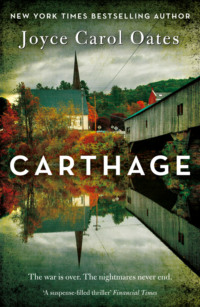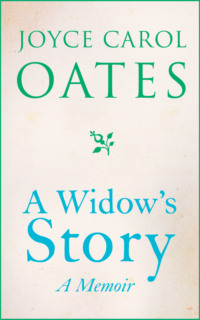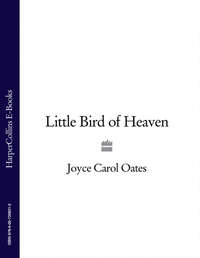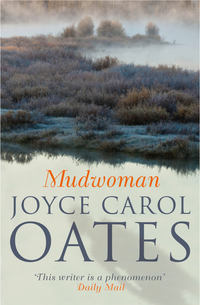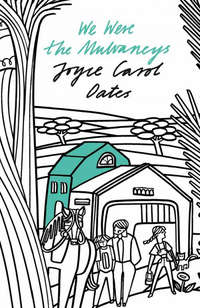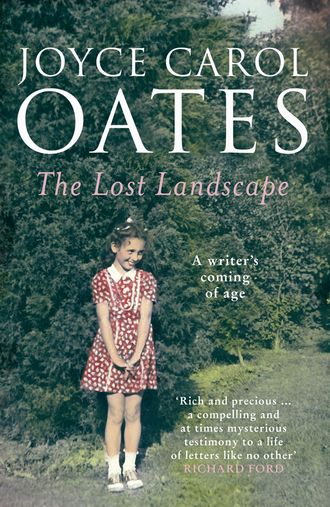
Полная версия
The Lost Landscape
What are you and Happy Chicken always talking about, the Mother asked the little girl, but the little girl shook her head defiantly, and would not tell.
(Sometimes, there was an egg or two discovered in Happy Chicken’s little nest. The little girl took these eggs away to give to the Grandmother for they were special Happy Chicken eggs not to be mixed with the eggs of the hens out in the coop.)
(Yet still, though Happy Chicken produced eggs, it seemed to be taken for granted that Happy Chicken was a boy-chicken. For always, Happy Chicken was he, him.)
The little girl was given a gift of Crayolas! At once the little girl began drawing pictures of me on sheets of tablet paper. Russet-brown was the little girl’s favorite Crayola crayon, for this was the color of my beautiful red-brown feathers. The little girl drew and colored many, many pictures of me, that were admired by everyone who saw them. With the help of the Mother, the little girl carefully printed, beneath the drawings
HAPPY CHICKEN
Sometimes, visiting relatives would peer at the little girl and me from the kitchen doorway, as the little girl sat on the floor beside my box drawing me, and I was tilting my head blinking and clucking at her.
The little girl would overhear people saying Is that just a—chicken? Or some special kind of guinea hen, that’s smarter?
For it had not ever been known, that a “chicken” could be a pet, in such a way. At least, not in this part of Erie County, New York.
Between a chicken and a little girl there is not a shared language as “language” is known. Yet, Happy Chicken always knew his name and a few other (secret) words uttered by the little girl and the little girl always knew what Happy Chicken’s special clucks meant, that no one else could understand and so when the Mother, or the Father, or any adult, asked the little girl what on earth she and the little red chicken were talking about, the little girl would repeat that it was a secret, she could not tell.
Sometimes, at unpredictable moments, I felt an urge to “kiss” the little girl—a quick, light jab of my beak against the girl’s hands, arms, or face.
And the little girl had a special little kiss on the top of the head just for me.
I WAS A YOUNG chicken less than a year old at this time in the little girl’s life when she hadn’t yet learned to run on plump little-girl legs without tripping and falling and gasping for breath and crying.
If the Mother was near, the Mother hurried to pick up the little girl, and comfort her. If the Grandmother was near, the Grandmother was likely to cluck at the little girl like an indignant hen and tell her to get up, she wasn’t hurt bad.
If the Father was near, the Father would pick up the girl at once, for the Father’s heart was lacerated when he heard his little daughter cry, no matter that she hadn’t been hurt bad. (But the Father was not often nearby for he worked in a factory seven miles away in Lockport, called Harrison Radiator.)
But always if an adult wiped the little girl’s eyes and nose the little girl soon forgot why she’d been crying even if she’d bruised or scratched her leg—the little girl cried easily but also forgot easily.
When you are a little girl you cry easily and forget easily.
Nor is it difficult to appear happy when you are a young chicken and without memory as the smooth blank inside of an egg.
The Mother had chosen the little girl’s name Joy-ce Carol because this seemed to her a happy name, there was joy in the name, when people spoke the name they smiled.
The Mother was a happy person, too. The Mother was not much older than a schoolgirl when the little girl was born but the little girl had no notion of what “born” was and so the little girl had not the slightest notion of how old, or how young, her pretty curly-haired Mother was, no more than Happy Chicken had a notion of anyone’s age.
This was the time when the little girl was an only child and so it was a happy time for the little girl who had her own room (separated by just a walk-in closet from her parents’ room) upstairs in the clapboard farmhouse. One day soon it would be revealed that the little girl was just the firstborn in the family. There would come another, a baby brother with the special name Robin, competing for attention and for love the way the squawking chickens competed for seed scattered in the barnyard at their feeding time.
The little girl had no notion of this amazing surprise to come. The little girl had no notion of anything that was to come except a promise of a drive to Pendleton for ice cream, or a visit with the Other Grandmother (the Father’s mother) who lived in Lockport, or a holiday like Christmas or Easter, or the little girl’s birthday which was the most special day of all June 16 when dark-red peonies bloomed in profusion along the side of the house as the little girl was told, just for her.
On her fourth birthday, the little girl was allowed to feed cake-crumbs to me, while the adults looked on laughing. Happy Chicken was allowed to sit on the little girl’s lap, if the little girl held me snug, and my wings tucked in, inside her arms.
Pictures were taken with the Father’s Brownie Hawkeye camera.
Pictures of little Joyce Carol and Happy Chicken, 1942.
With a frown of distaste the Grandmother would say, in her broken English, A chicken is dirty. A chicken should stay on the floor.
The Grandmother did not like me though sometimes the Grandmother pretended to like me. In the Grandmother’s eyes, a chicken was never anything more than a chicken. And a chicken was only of use, otherwise worthless.
Outdoors, when the little girl was nowhere near, and the Grandmother approached, I knew to flee, and to hide. Always to flee and to hide away from the other chickens, so brainlessly scratching and pecking in the dirt, in the darkest corner of the barn or far away in the orchard.
A chicken is not dirt-y, the little girl protested. Happy Chicken is nice and clean.
And so when a small dollop of hot wet mess came out of my anus, which I could not help, and onto the little girl’s shorts, the adults pointed and laughed, and the Mother quickly cleaned it away with wadded tissues as the Grandmother made her clucking-tsking noise.
The little girl was embarrassed, and ashamed. But the little girl always forgave me. And soon forgot whatever it was I’d done, because she was such a little girl, and forgot so easily, and was soon again stroking and petting me, and kissing the bone-hard top of my head.
Happy Chicken—I love you.
BECAUSE SHE WAS SUCH a little girl the little girl was always hoping that all the chickens would like her, and not just Happy Chicken who was her pet. Naively the little girl hoped that the rooster—(who was even more handsome than Happy Chicken, and much larger)—would like her. And so the little girl was continually being surprised—and hurt—when the rooster ignored her or worse yet bristled his feathers indignantly and rushed to peck at her hands or bare knees sharp enough to draw blood.
Many times this happened, that the little girl cried Oh!—and ran away frightened, and sometimes Mr. Rooster would chase her, and if the Grandfather was watching he would double over in laughter as if he’d never seen anything so funny. The Grandfather had a loud sharp laugh like bottles popping corks. His barrel chest would shake, his small shrewd eyes would shrink in the fleshy ridges of his face, his laughter turned into snorts, wheezing, coughing. Such loud, protracted coughing. And still, the Grandfather was laughing. For nothing amused the Grandfather more than someone chased by that goddamn bird unless it was the sight of the Grandmother’s white sheets billowing on the clothesline so hard, in such wind, clothespins slipped and a sheet sank to the ground and the Grandmother came running out of the house, furious, agitated, muttering in a strange guttural speech the little girl did not understand and that frightened her, like the loud shrieks and squawks of the chickens when something threw them into a panic, so the little girl stood very still and cringing and shutting her eyes pressing her hands over her ears like one who is waiting for something distressing to go away, stop.
If the little girl was inside the farmhouse, and heard a sudden squabble outside, a sign that someone or something was agitating the chickens, the little girl would run outside immediately to search for me. Oh oh oh—where is Happy Chicken?
The little girl knew about foxes and raccoons and stray dogs that might drag away chickens and devour them—(though it would be very unusual for any creature to make such a foray in daytime)—and so the little girl had to find me amidst the commotion, scoop me up in her arms and kiss the top of my head and smooth down my neatly folded wings and carry me quickly away promising that nothing bad would ever happen to Happy Chicken.
WE WERE RHODE ISLAND Reds. Three dozen hens and a single rooster.
Other male chickens in the flock had been squashed as soon as it was evident that they were male. Our rooster had not a clue that he’d come close to oblivion. Or, our rooster had not a care that he’d come close to oblivion. Through the day Mr. Rooster strutted in the yard and roosted in the lowermost limbs of trees showing off his spectacular tail feathers, and the ruff around his neck; bristling red-brown, dark-red, yellow-red feathers that shone in the sun. Yellow-scaly legs, and nasty-sharp spurs just above the talon-claws. Though Mr. Rooster was as stupid as any hen pecking brainlessly in the dirt, or rolling in the dirt in the (mostly futile) effort of getting rid of mites, yet Mr. Rooster was fascinating to watch for you never knew what Mr. Rooster would do next. (You never knew what any hen would do next, but anything a hen can do is of so little significance there is no point in observing her.) Mr. Rooster could leap into the air fluttering his wings, for instance, and devour a dragonfly three feet above the ground, and Mr. Rooster could rush in a blind rage at an unsuspecting hen, or two unsuspecting hens, or, as if he’d only just thought of it, and now that he was doing it, it was a significant thing to do, throwing himself down and rolling over vigorously in the dirt until his gaudy feathers were dull with dust like those of an ordinary chicken.
Mr. Rooster gave no sign of knowing who I was—who Happy Chicken was! Ridiculous how this stupid bird seemed not to notice even as the little girl singled me out for special attention and treats in his very presence. (I’d have liked to think that Mr. Rooster was jealous of me, but the fact was, Mr. Rooster was too vain and too stupid for jealousy.)
That is, Mr. Rooster was indifferent to me unless I stepped brashly in his way, or failed to get out of his way quickly enough when he charged forward into the midst of the chickens at feeding time.
Sometimes for a reason known only to Mr. Rooster’s pea-sized brain he crowed loudly and irritably and flapped his wings in a show of indignation and flew clumsily to alight on a rail fence, like a person clumsily hauling himself up by a rope.
At dawn, Mr. Rooster woke everyone with his crowing. He was the first rooster to wake in all of Millersport—soon after Mr. Rooster crowed, you would hear roosters crowing at neighboring farms. No other rooster at any neighboring farm woke earlier than Mr. Rooster, and no other rooster crowed as noisily.
The hens took for granted that Mr. Rooster’s crowing tore a rent in the silence of the countryside-before-dawn that allowed the sun to appear. The little girl may have thought this also, but only when she was very little.
The Grandfather who took little interest in the chickens—(these were the Grandmother’s responsibility)—was yet proud of his goddamn bird. The Grandfather liked it that Mr. Rooster chased away other chickens and barn-cats who ventured too near and had to be disciplined.
How many dawns, the little girl was wakened by Mr. Rooster’s cries. Through her life to come, long after she’d grown up, and gone away from the farmhouse on Transit Road to live, she would wake to the faint, fading cry of a rooster just outside in the dark-before-dawn.
Is a rooster a harbinger of the Underworld? Does a rooster wake you so that you have no choice but to follow him into the Underworld?
After she’d become an adult older than the Mother and the Father of her early childhood, and the little scabs and scars caused by the rooster’s beak had long faded from her knees, frequently she would find herself touching her knees like Braille, when she was alone.
Very often, in bed. In the bright pitiless light of a bathroom she would examine her knees frowning and baffled, her childhood scars had so vanished as if they had never been . . . It is hard to disabuse yourself of the superstition that your skin is indelibly marked since childhood in a way known only to you.
Upsetting to remember how Mr. Rooster would single out a hen for no reason—(had she disrespected him? taunted him? dared to eat something meant for him?)—peck and jab at the terrified bird until she began to bleed, and chase her until she seemed to fall, or to kneel, before him. And then, Mr. Rooster might have mercy on her, and strut away. But a scab would form shiny and bright as a third eye on the hen’s head, that would attract the attention of another hen, and so soon—for some reason—(the little girl could not understand this, it frightened her very much)—this hen would peck at the afflicted hen, and soon another hen would hurry over to peck at the afflicted hen, and another, and another; and sometimes Mr. Rooster, attracted by the squawking, might return for the coup de grâce—a series of rapid beak-stabs until the poor afflicted hen was bleeding, fallen over and unable to right herself beneath the frenzy of stabbing beaks . . . And hearing the barnyard commotion the Grandmother would hurry out of the house scolding and shooing with the intention of rescuing not the struggling live hen but the limp hen-corpse for the Grandmother’s own purposes.
In her harsh guttural speech the Grandmother would curse the chickens and the rooster. Much of the Grandmother’s speech had a sound of chiding and cursing. And the Grandmother would take up the limp blood-dripping hen-corpse into the kitchen and boil a pan of water on the stove and drop the hen-corpse into it, so that the feathers could be plucked more easily.
At these times the little girl had run away and hid her eyes.
The Mother would say to her, Don’t pay any attention, help me in the kitchen, sweetie!
Mostly the little girl would not remember such things. The little girl’s memory of the farm on Transit Road was very selective like the colander into which the Grandmother dumped boiling water containing her thin-cut noodles, made out of the Grandmother’s noodle-dough, that trapped just the noodles but strained away the liquid.
In later years recalling with a fond smile very little of the farm, the barnyard, the flock of Rhode Island Reds—just, me.
THE LITTLE GIRL WAS so excited! She was five years old.
This was the summer the little girl was allowed to help the Grandmother collect eggs from the hens’ nests in the chicken coop (where the chicken droppings were so smelly, you had to hold your breath especially after a rain) and soon then, the little girl was allowed to feed the chickens by herself, twice a day, their special chicken-feed. Like tiny pebbles the chicken feed seemed to the little girl, seized in handfuls to toss to the chickens; to get the seed you lowered a tin pie pan deep into the feed-sack, itself contained inside a larger, canvas sack to keep out rats and mice.
So exciting! Almost, the little girl wetted her panties, with anticipation.
And when she began to call to the chickens in her high, quavering voice as the Grandmother had taught her—CHICK!-chick-chick-chick-chick-CHI-ICK!—chickens came rushing in her direction at once, and made the little girl feel very special—very powerful. It was not ever the case that the little girl felt powerful—nor could the little girl have defined the sensation, at the time; but calling CHICK!-chick-chick-chick-chick-CHI-ICK provoked such a feeling in her, set her heart to pumping and a warm, rich sensation coursing through her veins, the little girl felt very special, and very proud.
Oh, she could see—(for she was a quick-witted, smart little girl)—that the chickens were oblivious of her, in their greed to devour seed they took not the slightest interest in her, or in their surroundings; yet still it seemed to the little girl that the chickens must like her, and knew who she was, for they came so quickly to her, colliding with one another, scolding and fretting, pecking one another in a frenzy to get to the seed the little girl tossed in a wide, wavering circle.
The Grandmother had instructed the little girl to distribute the seed as evenly as she could. You did not want all the chickens rushing together in a tight little spot, and injuring themselves. The little girl understood that she had to be fair to all the chickens, not just a few.
But the largest and most aggressive chickens rushed and pecked and beat away the others no matter how hard the girl tried.
Of course, Joyce Carol always fed me, specially. In a safe little area, by the side of the house. This was Happy Chicken’s special meal, which was served ahead of the general feeding. If other chickens noticed, and ran clucking to this meal, the little girl stamped her feet and shooed them away.
Though he might have been prowling out in the orchard, soon there came Mr. Rooster running on his long scaly legs. Mr. Rooster could hear the Chick-chick-chick! call from a considerable distance. He pushed through the throng of clucking chickens knocking the silly hens aside and gobbled up as much seed as he could from the ground. Sometimes then pausing, looking up with a squint in his yellow eyes, and made a decision—(who knows why?)—to rush at the little girl and jab her bare knee with his beak.
So quickly this assault came, when it came, the little girl never had time to draw back and escape.
Ohhh! Why was Mr. Rooster so mean!
The little girl was always astonished, the rooster was so mean.
The rooster’s beak was so swift, so sharp and so mean.
Worse yet, the rooster sometimes chased the little girl, trying to peck her legs. If the Grandmother saw, she shooed the rooster away by flapping her apron at him and cursing him in Hungarian. If the Grandfather saw, he gave the rooster a kick hard enough to lift the indignant bird into the air, squawking and kicking.
It was one of the mysteries of the little girl’s life, why when the other chickens seemed to like her so much, and her pet chicken adored her, Mr. Rooster continued to be so mean. It did not make sense to the little girl that Mr. Rooster devoured the seed she gave him, then turned on her as if he hated her. Shouldn’t Mr. Rooster be grateful?
The Mother kissed and cuddled her and said, Oh!—that’s just the way roosters are, sweetie!
Plaintively the little girl asked the Grandmother why did the rooster peck her and make her bleed and the Grandmother did not cuddle her but said, with an air of impatience, in her broken, guttural English, Because he is a rooster. You should not always be surprised, how roosters are.
THE LITTLE GIRL WANDERED the farm. The little girl was forbidden to step off the property.
There was the big barn, and there was the silo, and there was the chicken coop, and there were the storage sheds, and there was the barnyard, and there was the backyard, and there were the fields planted in potatoes and corn, and there was the orchard and beyond the orchard a quarter-mile lane back to the Weidenbachs’ farm where there were big nasty dogs that barked and bit and the little girl did not dare to go. In these places chickens wandered, and also Mr. Rooster, in their ceaseless scratching-and-pecking for food, though it was rare to see a chicken in one of the farther fields or in the lane. Happy Chicken only accompanied the little girl if she called him to these places, or carried him snug and firm in her arms.
The little girl placed me on the lowermost limb of the lilac tree by the back door of the house, so that I could “roost.” The little girl urged me to try to “fly—like a bird.” But if the little girl nudged me, and I lost my balance on the tree limb, my wings flapped uselessly, and I fell to the ground and did not always land on my feet.
At such a time I picked myself up and tottered away clucking loudly, complaining like any disgruntled hen, and the little girl hurried after me saying how sorry she was, and promised not to do it again.
Happy Chicken! Don’t be mad at me, I love you.
(IT WAS TAKEN FOR granted, it was never contested or wondered-at, that our wings were useless. We could “flap” our wings and “fly” for a few feet—even Mr. Rooster could not fly farther than a few yards; though there were wild turkeys, fatter and heavier than Rhode Island Reds, who could manage to “fly” into the higher limbs of a tree, and there “roost.”)
NOT JUST THE CHICKEN coop and much of the barnyard but the grassy lawn behind the house—(“lawn” was a name given to the patch of rough, short-cropped crabgrass that extended from the barnyard and the driveway to the pear orchard)—was mottled with chicken droppings. Runny black-and-white glistening smudges that gradually hardened into little stones and lost their sharp smell.
You would not want to run barefoot in the backyard, in the scrubby grass.
And there was the ugly tree stump along the side of the barn, stained with something dark.
And surrounding the stained block, chicken feathers. Sticky-stained feathers in dark clotted clumps.
No chickens scratched and pecked in the dirt here. Even Mr. Rooster kept his distance. And the little girl.
GRANDMA WAS THE ONE, you know. The one who killed the chickens. No! I did not know.
Of course you must have known, Joyce. You must have seen—many times. . . .
No. I didn’t know. I never saw.
But . . .
I never saw.
In later years she would recall little of her Hungarian grandparents. Her mother’s stepparents. For few snapshots remained of those years. She did know that the Grandfather and the Grandmother were something that was called Hungarian. They’d come on a “big boat” from a faraway place called Hungary years before the little girl was born and so this was not of much interest to the little girl since it had happened long ago. The grandparents seemed to the little girl to be very old. The big-breasted big-hipped Grandmother had never cut her hair that was silvery-gray-streaked and fell past her waist if she let it down from the tight-braided bun. The Grandmother had been eighteen when she’d come to the United States on a “boat” and at age eighteen it had seemed to her too late for her to learn English, as the Grandfather had learned English well enough to speak haltingly and to run his finger beneath printed words in a newspaper or magazine. The Grandfather was a tall big-bellied man with scratchy whiskers who liked to laugh as if much were a joke to him. He had rough calloused fingers that caught in the little girl’s curly hair when he was just teasing.
Worse yet was tickling. When the Grandfather’s breath smelled harsh and fiery like gasoline from the cider he drank out of a jug. But the Mother insisted Grandpa loves you, if you cry you will make Grandpa feel bad.



